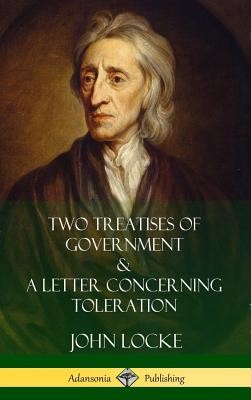
- Išsiųsime per 12–18 d.d.
- Autorius: John Locke
- Leidėjas: Lulu.com
- ISBN-10: 1387999036
- ISBN-13: 9781387999033
- Formatas: 15.2 x 22.9 x 1.3 cm, kieti viršeliai
- Kalba: Anglų
- Extra -15 % nuolaida šiai knygai su kodu: ENG15
Two Treatises of Government and A Letter Concerning Toleration (Hardcover) (el. knyga) (skaityta knyga) | knygos.lt
Atsiliepimai
Aprašymas
Three of John Locke's finest works, which expound political and religious ideas revolutionary in their time, are presented together in this printing. When Dutch monarch William of Orange ascended to the English throne in the Glorious Revolution of 1688, burning questions over the best form of governance for England were prominent among the intelligentsia of the era. It was a time when England grappled with incremental transition from monarchy to early forms of democracy and voting. In the first treatise of government Locke proceeds to attack and dissect his prominent contemporary Robert Filmer, who was broadly in favour of absolute monarchy under the principle of divine right. The allusions to the Biblical Adam, wherein the monarch can be intimated as a continuation of the first man ever created, are debunked by Locke who asserts that God never asserted that one man had province to rule over all other human beings.
EXTRA 15 % nuolaida su kodu: ENG15
Akcija baigiasi už 5d.21:23:56
Nuolaidos kodas galioja perkant nuo 5 €. Nuolaidos nesumuojamos.

- Autorius: John Locke
- Leidėjas: Lulu.com
- ISBN-10: 1387999036
- ISBN-13: 9781387999033
- Formatas: 15.2 x 22.9 x 1.3 cm, kieti viršeliai
- Kalba: Anglų
Three of John Locke's finest works, which expound political and religious ideas revolutionary in their time, are presented together in this printing. When Dutch monarch William of Orange ascended to the English throne in the Glorious Revolution of 1688, burning questions over the best form of governance for England were prominent among the intelligentsia of the era. It was a time when England grappled with incremental transition from monarchy to early forms of democracy and voting. In the first treatise of government Locke proceeds to attack and dissect his prominent contemporary Robert Filmer, who was broadly in favour of absolute monarchy under the principle of divine right. The allusions to the Biblical Adam, wherein the monarch can be intimated as a continuation of the first man ever created, are debunked by Locke who asserts that God never asserted that one man had province to rule over all other human beings.




Atsiliepimai